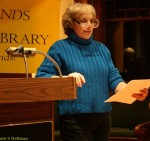Do authors need Websites? Yes…but!
An aspiring author asks if she needs a Website for her new book.
My answer is yes:.the more exposure you can get on the Web the better–so that people searching for you or your topic can find you. But building a website is not for the faint of heart.
Having researched several site-building platforms, I decided to use WordPress to build this site and sites for my books, Ithaca Diaries and Broken Patterns.
I chose WordPress because it seemed to be the simplest option, and you can build a site a WordPress.com for free. But I have to say there was quite a learning curve. To start with, the free templates are not at all intuitive (nor are the paid ones).
Then I had to decide if I would pay for my own domain (web address). That is, a free WordPress site for New Cambridge Observer would be posted on WordPress.com and have the address http://newcambridgeobserver.wordpress.com. I opted to pay approximately $12 to purchase the domain name “New Cambridge Observer,” so that it could have the simpler address https://newcambridgeobserver.com. Then, I had to decide if I would pay for hosting at wordpress.com (simple, but limited options to sell from a site there,) or pay to have it hosted on the server of a company like Godaddy, com.. I chose the latter because it allows more versatility and hosts my multiple sites for approximately $100 a year.
But no matter which building or hosting option you choose,: be aware that once your site or blog is launched, it takes a lot of time and energy to get readers to go there. You need to understand the ever changing methods of search engine optimization and be very active on social media. And once you get readers to the site, it’s a challenge to get them to comment or interact. (To my readers–what gives?)
So, if you want to do it yourself, I’d advise a simple site optimized for SEO, combined with an intense social media plan. . If your goal is to build a community, you should put time, energy and $ into a Web site. If your goal is to sell books, I’d advise a small site or blog (like this one–I used a free template called “Magazine Basic”). It’s relatively easy to post important information and links that will take readers to Amazon, Kobo or other sites for stores where your books are available. You should also build an author site on Amazon–that’s easy compared with building a Web site– but you still need to get people to go there.
Good luck!
–Anita M. Harris
Author, Ithaca Diaries, Coming of Age in the 1960s, Cambridge Common Press, 2015) Broken Patterns, Professional Women and the Quest for a New Feminine Identity (Cambridge Common Press, 2014)
New Cambridge Observer is a publication of the Harris Communications Group, a marketing and PR firm based in Cambridge, MA.

 Newspapers have long kept tabs on the changing world–but have themselves been slow to modernize. To flourish these days,
Newspapers have long kept tabs on the changing world–but have themselves been slow to modernize. To flourish these days, I’m pleased to learn that CCTV and Google will be offering one-on-one computer training for Cambridge, MA residents over 50. Participants, paired with Google employees. will receive one-on-one training on how to send email, search the Internet, pay bills on-line, and more. Training will be tailored to each participant’s interests and experience. People of all levels are welcome to register.
I’m pleased to learn that CCTV and Google will be offering one-on-one computer training for Cambridge, MA residents over 50. Participants, paired with Google employees. will receive one-on-one training on how to send email, search the Internet, pay bills on-line, and more. Training will be tailored to each participant’s interests and experience. People of all levels are welcome to register.